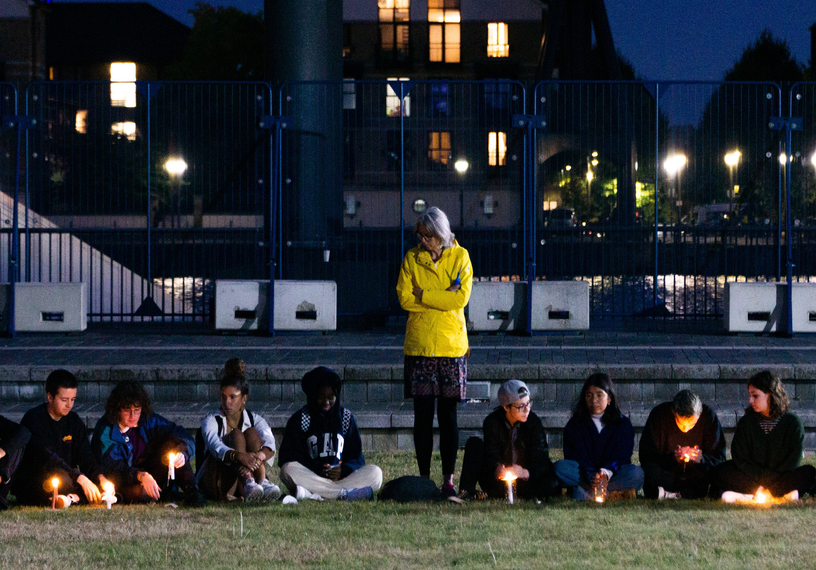Quakers united in opposition to war
Eight Quaker agencies have signed a joint statement on the peace testimony and the war in Ukraine.

As the war drags into its ninth month, the statement notes that the Quaker vocation as a peace church is "to seek and make real the peaceful alternatives to armed conflict, and to ensure that the long-lasting human costs of war are not forgotten or neglected."
The Quaker agencies hope that the statement will inspire Quakers to consider what their part is in working for peace.
It follows an August visit to Quakers in Poland, Estonia and Latvia by Tim Gee, general secretary of the Friends World Committee for Consultation, and Nozizwe Madlala-Routledge, director of the Quaker United Nations Office, Geneva.
[QUOTE-START]
We are ready to play our part.
- Joint statement on Quaker Peace Testimony
[QUOTE-END]
Hundreds of thousands of refugees from the war in Ukraine have arrived in these countries, as well as soldiers, and the pair were keen to find out how they might help Quakers locally, and how the Quaker peace testimony was being lived out in such conditions.
At an online event on 27 October (watch here), Gee said: "I really hope that every Quaker – but also every organized Quaker group – can look at this statement and say, 'What does this lead me to do? What is my part in this?'"
The statement recognizes that the Quaker peace testimony "manifests as a cumulative set of actions, continually tested and added to over centuries."
These actions are diverse but have been broadly united by a refusal to kill, relief of suffering, building institutions of peace, supporting peacebuilding and removing the causes of war.
During the Ukraine conflict this includes standing with conscientious objectors on all sides, supporting the people in Ukraine employing creative non-violent civil resistance, pressing for the rights of refugees to be recognised and seeking to strengthen frameworks of international law.
Signatories to the statement were: Timothy Gee, Friends World Committee for Consultation; Nozizwe Madlala-Routledge, Quaker United Nations Office, Geneva; Sarah Clarke, Quaker United Nations Office, New York; Bridget Moix, Friends Committee on National Legislation; Joyce Ajlouny, American Friends Service Committee; Jennifer Preston, Canadian Friends Service Committee; Tracey Martin, Quaker Council on European Affairs; Oliver Robertson, Quaker Peace and Social Witness.